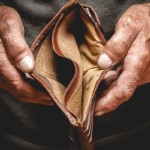Let’s be honest: Periods, in general, aren’t exactly comfortable. If you’re one of the 10 million Americans who deal with heavy bleeding during your period, then you have all the more reason to complain about that time of the month.
But what actually counts as “heavy” here? Medically speaking, periods that soak through a tampon or pad in less than two hours—or involve passing clumps of blood called clots—aren’t normal. “If someone with a light period had a period like that, they’d think they were bleeding to death.
Charles Ascher-Walsh, MD, senior system vice chair for gynecology at the Icahn School of Medicine at Mount Sinai, tells SELF.
Heavy periods aren’t just inconvenient (and expensive, given the cost of pads and tampons). They can often be painful, causing extra-rough cramps, depending on the cause. You also may not feel awesome about venturing away from home if you’re in pain or worried about bleeding through your clothes. And all that blood loss can result in anemia, or low red blood cells, causing you to feel tired or weak.
Lots of different medical conditions, ranging from benign to serious, can cause heavy menstrual bleeding—and to treat them properly, your doctor will first want to help you figure out what’s going on. Keep reading to learn more about what might be causing you to soak through pads or tampons, and steps you can take to deal with it.
1. Uterine fibroids
Uterine fibroids—benign firm, rubbery growths on the uterus—affect up to 80% of people who get periods. Many cases of fibroids don’t cause any symptoms. For people who do experience symptoms, one of the most common is heavy bleeding during a period.
“Some people get really big fibroids and it can cause pain or problems going to the bathroom too,” Samantha Schon, MD, assistant professor of reproductive endocrinology and obstetrics and gynecology at University of Michigan Health, tells SELF. Fibroids can also cause pelvic pain and back pain, though Dr. Schon says the exact symptoms depend on their location in the uterus.
2. Uterine polyps
Polyps are soft, fleshy growths usually found on the inside lining of the uterus (called the endometrium) and on or around the cervix. Like fibroids, polyps don’t always cause symptoms. Most commonly, they can lead to irregular bleeding—that is, bleeding between periods for unpredictable amounts of time. But some people, Dr. Schon says, may also experience heavy bleeding with polyps.
3. Thyroid problems
Thyroid disease is a potential cause of heavier periods that is often unrecognized, Dr. Ascher-Walsh says. The thyroid is a butterfly-shaped gland at the base of the neck that releases thyroid hormone, which controls lots of different activities in your body, from your metabolism to your heart rate. It also helps control your menstrual cycle, so both an underactive (hypothyroid) and overactive thyroid (hyperthyroid) can trigger menstrual cycle changes. Some people with thyroid issues skip periods altogether or their periods get lighter, while others might have irregular or way heavier periods.
Underactive and overactive thyroid can be the results of autoimmune disorders (Hashimoto’s disease or Graves’ disease), iodine deficiency, thyroid inflammation (a.k.a. thyroiditis), problems with the pituitary gland (which releases thyroid-stimulating hormone), certain medications, and thyroid tumors.
4. Irregular ovulation
Various hormonal imbalances can cause people to ovulate irregularly. Ovulation releases the hormone progesterone, which keeps the uterine lining from building up, Dr. Schon explains. If a woman isn’t ovulating, there’s nothing to keep that buildup in check. Then, when ovulation does happen (but pregnancy does not), the builtup lining can come out all at once during menstruation, causing heavy bleeding. “Some people can not have a period for six months and then have a period for a month straight,” says Dr. Schon.
One possible cause of these imbalances is polycystic ovary syndrome (PCOS), which affects 5% to 10% of women of childbearing age. If your periods are both heavy and irregular, and you also have excess body hair, hormonal acne, or difficulty getting pregnant, you may want to go to an endocrinologist to get tested for PCOS.
5. Endometrial or cervical cancer
Rarely, a cancerous growth on the uterine lining (endometrium) or cervix can be the cause of heavy bleeding. If you’re over 45 and still have regular periods—but they’re heavy—Dr. Ascher-Walsh says it’s worth getting checked out. Typically, people with cancer have other symptoms, like irregular bleeding, vaginal discharge, pelvic pain, and weight loss, but it’s worth mentioning heavy periods to your doctor so they can look into what’s going on and do any additional testing if they are suspicious.
6. Bleeding disorders
Heavy bleeding during a period could be a sign of a bleeding disorder such as immune thrombocytopenia (ITP), which prevents blood from clotting properly. If you have this condition, you may also bruise more easily than other people and deal with frequent nosebleeds.
A heavy period could also point to the bleeding disorder von Willebrand disease, which leads to abnormal platelets that prevent blood from clotting, especially if the heavy periods started when you first got your period, Dr. Schon says. Von Willebrand disease is the most common inherited bleeding disorder in American women and is seen in between 5% and 24% of women with chronically heavy periods, according to the American Congress of Obstetricians and Gynecologists.
7. Medications
Certain medications can also include heavy bleeding as a side effect. Hormonal birth control, including the pill and IUDs, are usually meant to decrease bleeding—but in some people, Dr. Schon says, they can cause prolonged or heavy bleeding. And the copper IUD, in particular, is associated with more bleeding than other forms of birth control. If you take blood thinners or you’re undergoing chemotherapy, Dr. Schon says your blood may not clot as well, which may also cause a heavier-than-normal flow during your period.
How to deal with heavy bleeding during your period
If your heavy period is bothering you, definitely talk to your doctor. “In gynecology, we think of the period as a vital sign,” says Dr. Schon. “So if it’s changing or abnormal, it’s important to rule out more serious causes.” Most of the time—especially if you haven’t yet reached menopause—whatever is causing your heavy bleeding won’t be super serious, says Dr. Ascher-Walsh.
More good news? There are a lot of effective treatments for heavy periods, ranging from medications to surgical procedures. How your doctor addresses the heavy flow ultimately depends on the cause. For example, if you end up being diagnosed with fibroids, polyps, or other growths, your doctor may recommend a procedure or surgery to remove them. In other cases, treatment could be as simple as starting birth control (or changing the one you’re on, if it’s making you bleed more) to make your periods more predictable and potentially lighter.
Even if you’ve gotten used to your heavy bleeding, don’t blow it off in hopes it’ll go away on its own. “You don’t need to live with a heavy period that can be such a burden every month,” says Dr. Ascher-Walsh. “There are always options.”



